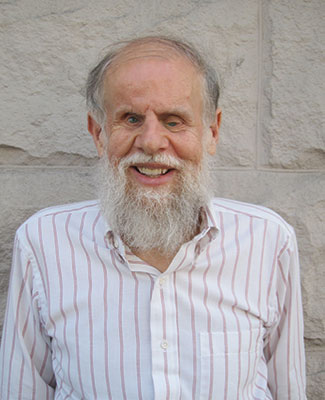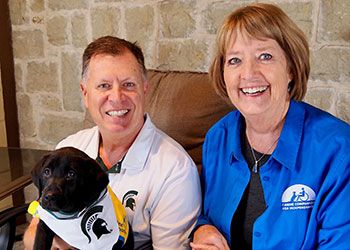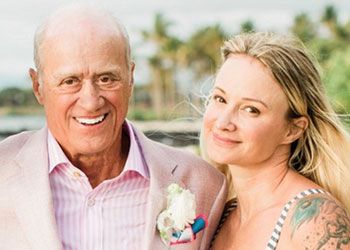All Things for All People
"You want to be able to work on your education, and have your decision to come to MSU be based on your abilities, not on your disabilities.”

All Things for All People
"You want to be able to work on your education, and have your decision to come to MSU be based on your abilities, not on your disabilities.”
June 10, 2016The Resource Center for Persons with Disabilities, or RCPD, at Michigan State University has a big mission: find solutions to the challenges that face people with disabilities in higher education.
“It’s easy to identify the needs of those who are visually impaired, deaf, or experience mobility challenges,” says Mike Hudson, director of the RCPD. “But we’ve also become adept at recognizing and addressing the needs of those with less visible disabilities, too, like learning disabilities, chronic health, mental health conditions, or those on the autism spectrum.”
Making campus universally accessible is a long-term, dream-big goal that the RCPD is able to work toward thanks to donor support.
Alumnus Greg Fowler is one of those donors.
When he talks about his time at MSU, and the long, successful career that followed, he sounds just like any other proud alumnus. And he is, except for one major detail: he’s blind. But it’s clear that he never let that slow him down.
When he first arrived on campus, a large, tactile map—in book form—helped him navigate buildings and sidewalks. “I was never too hesitant about going out on my own and getting around,” Fowler says. “It’s a large campus, with a lot of people, but that meant I was never too far from someone who could point me in the right direction if I got turned around.”
He majored in electrical engineering, mixed in some computer science courses, earned a master’s degree at Stanford, then spent his career working in software development, system administration, and operating system research at various companies in the San Francisco area before retiring in 2003.
Fowler found great satisfaction in his work, especially the direct interaction with users of the products he helped create. “It was incredibly satisfying to see what people were doing with the products, and how we could make the products better by understanding the users’ needs,” he says.
Fowler finds the same satisfaction in giving back to MSU, and especially in giving back to the RCPD. He knows first-hand the kind of challenges students with disabilities face—especially those with visual impairments—and he’s aware of the center’s efforts to help eliminate the stress of those challenges, both in the classroom, and on campus. Fowler has long supported those efforts, and in 2014 he decided to maximize his impact by creating the Emerging Opportunities Fund at the RCPD, which provides expendable funding for the center’s most immediate needs.
That includes things like the MSU Guide App, a mobile app that allows users to point their device at a building or structure and have the device identify it audibly—a far cry from the days of lugging around the tactile map book as Greg Fowler did in the 70s.
Donor support also makes possible low-tech but equally essential items like 3-D models of textbook illustrations—created by students in the College of Engineering to help classmates understand the visual figures that do not translate effectively into Braille.
“Greg has a first-hand awareness of how important this work is. We don’t always know what the next great idea is going to be, or what the next impromptu student need is going to be. The fund he’s created gives us the ability to meet immediate needs and make great ideas a reality,” Hudson says.
For Fowler, it truly is personal. “Having a good education, and having the opportunity to gain that education, is the reason I was able to do all the things I’ve done. And I think it’s important that current and future students have the same opportunity to receive the education that they deserve. You want to be able to work on your education, and have your decision to come to MSU be based on your abilities, not on your disabilities.”
For more information on making a gift to the Resource Center for Persons with Disabilities, contact Senior Director of Development Jennifer Bertram at bertram9@msu.edu or call (517) 432-7330.




